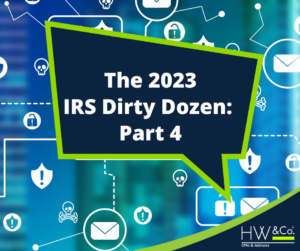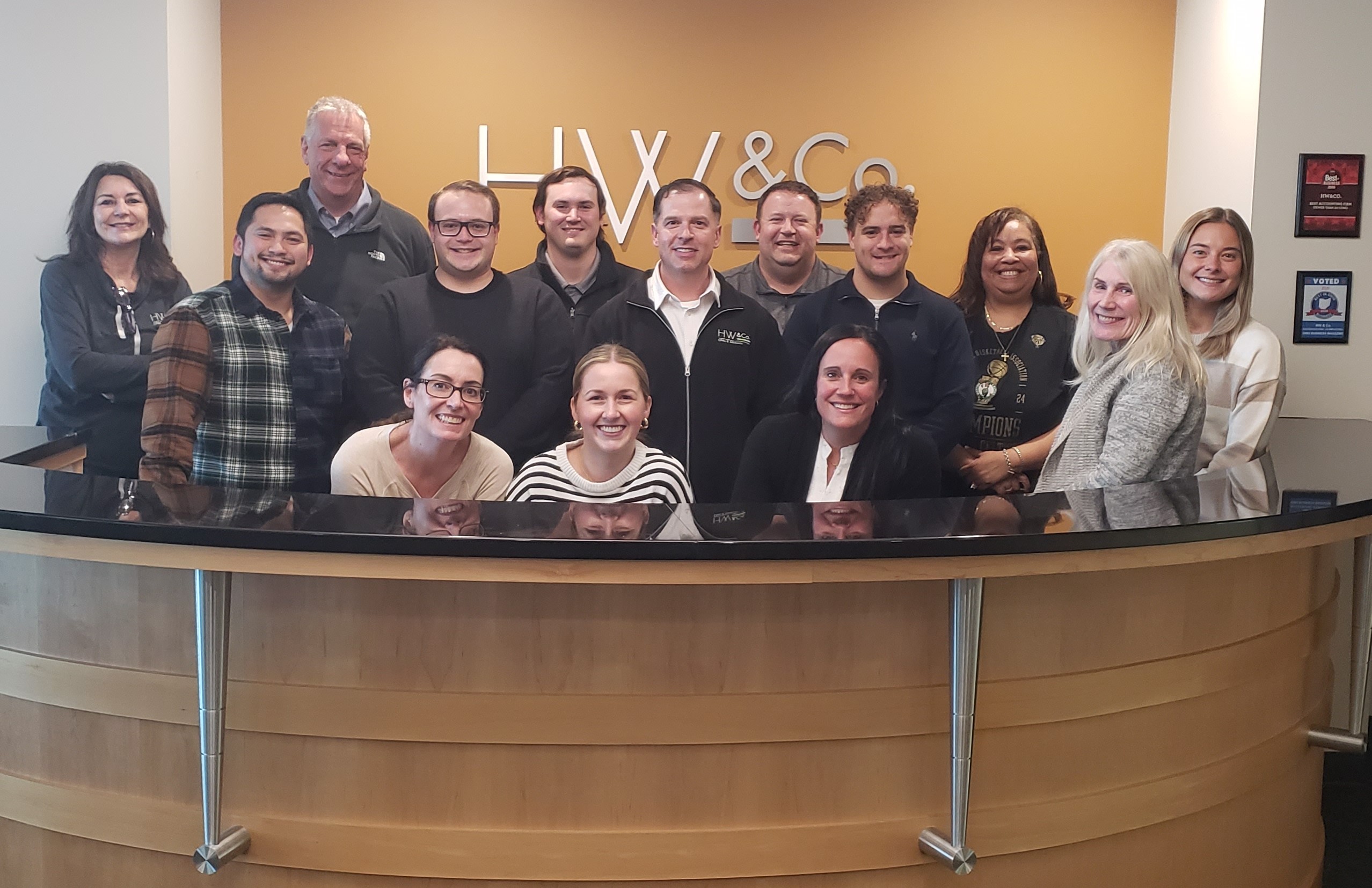 Today, we continue bringing you the scams highlighted by IRS’s 2023 Dirty Dozen campaign, an annual list compiled by the IRS listing the most common tax schemes and providing taxpayers with important information about how to protect themselves.
Today, we continue bringing you the scams highlighted by IRS’s 2023 Dirty Dozen campaign, an annual list compiled by the IRS listing the most common tax schemes and providing taxpayers with important information about how to protect themselves.
Here are three more items from the Dirty Dozen that taxpayers should be ready to identify as potential scams: erroneous tax advice on social media, spearphishing, and offer in compromise mills (used for settling IRS debts).
7. Advice on Social Media
The IRS is reminding taxpayers that social media should not be trusted when it comes to tax advice. Social media is ubiquitous in our society, and many of us know not to rely on it for accurate information, even if the source appears authoritative. However, scammers can be crafty and convincing, especially when enticing taxpayers with the promise of enhanced refunds.
A common ploy involves completing and filing tax forms—such as Form W-2 or Form 8944— with inaccurate information in the hopes of receiving, or bolstering, a refund. Form 8944, in particular, should not be used by the average taxpayer. And taxpayers should never consider falsifying information on their W-2s.
The promise of easy money may entice otherwise honest taxpayers, but be warned that taxpayers who intentionally file forms containing false information may face civil and criminal penalties. The IRS is monitoring these forms closely to catch these fraudulent schemes.
8. Spearphishing
Spearphishing is phishing that uses scams designed to target a specific business or organization. As we discussed in IRS Dirty Dozen Part 2 – Phishing, Smishing, and Fake Assistance with Online Accounts, phishing occurs when an imposter sends an email that appears to be sent from a legitimate source, but it lures taxpayers into providing sensitive personal information or manipulates them into participating in certain schemes, such as receiving a phony tax refund or convincing them that they have committed tax fraud. Spearphishing messages (either via email or text) use specific information about an organization to convince victims of the message’s authenticity and trick taxpayers or tax preparers into providing sensitive personal information.
Spearphishing is especially risky because it often targets tax professionals in an attempt to gain access to their professional identities and information. Scammers can use this data to perform a data breach and gain access to clients’ personal data. The information gleaned can be used for a variety of nefarious purposes, including filing fraudulent tax returns. Because shrewd scammers have started using the IRS logo and intimidating subject lines (with phrases like “urgent” and “action required”), it’s easy for even seasoned professionals to have a misstep. To protect yourself against spearphishing, follow these tips:
- Don’t click on links in emails (instead, type link text directly into your browser).
- Reach out to the sender to determine whether the email is legitimate.
- Remember that phishing and spearphishing are year-round threats; don’t let your guard down after tax season.
According to IRS Commissioner Danny Werfel, it’s important for tax professionals to be vigilant with emails: “There are simple steps that tax pros and businesses can take to avoid being fooled by these common schemes, including extra caution when opening emails, clicking on links or sharing sensitive client data,” he said. “Extra care can go a long way to protect tax professionals and businesses as well as their clients.”
9. Offer in Compromise Mills
Offer in Compromise (OICs) are situations where the IRS works with taxpayers settle tax debt for less than they owe. This option can be used when taxpayers are incapable of paying their full tax amount due to financial hardship. Each situation is unique, and the OIC agreement is designed according to the taxpayer’s individual circumstances.
However, OIC mills are agencies known for promoting–often by heavily advertising on radio and TV—services claiming help taxpayers obtain OICs. They frequently mislead taxpayers into paying for information and services they could easily obtain on their own. And, after engaging the services of an OIC and paying fees, taxpayers may discover they don’t meet the requirements of an offer. Taxpayers can check their OIC eligibility for free using the IRS’s Offer in Compromise Pre-Qualifier tool.
It’s important to remember that taxpayers can work directly with the IRS to reach an OIC agreement; there is no need to use a third party.
The IRS urges people to report abusive tax schemes and abusive tax return preparers.
Read more about the IRS’s the other Dirty Dozen campaign:
IRS Dirty Dozen Part 1 – 2023 Campaign Kicks Off by Warning About ERC Schemes
IRS Dirty Dozen Part 2 – Phishing, Smishing, and Fake Assistance with Online Accounts
IRS Dirty Dozen Part 3 – False Fuel Tax Credit Claims, Fake Charities, and Deceitful Tax Preparers
IRS Dirty Dozen Part 5 – Schemes Aimed at High-Income Tax Filers, Bogus Tax Avoidance Strategies, and Schemes With International Elements
Stay tuned as we continue to profile the remaining entries to keep you apprised of how to avoid evolving tax schemes.
For more information, please visit the IRS website or contact an HW&Co. Advisor today.
@2023






